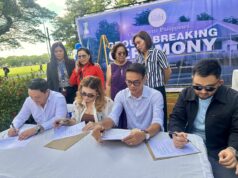ON MARCH 28, 1907, Governor James Francis Smith issued peace certificate declaring that since the publication of the Philippine Census in 1905 there had been no serious disturbances of the public order save those by outlaws and religious fanatics and that the great mass of the Filipino people for the previous two years had been “law-abiding, peaceful and loyal to the United States”.
This certification was required by the Philippine Bill of 1902 for the establishment of the Philippine Assembly. According to the Philippine Bill, the Philippine Assembly was to be established two years after the publication of the Census provided there was complete peace certified by the Governor General to the President of the United States.
Philippine Bill of 1902, enacted by the United States Congress on July 1, 1902, is also known as the Cooper Act, after its author US Congressman Henry A. Cooper. It was the basic law for the Insular Government.
Subsequently, the President of the United States was formally requested to authorize the Philippine Commission to call a general election for the choice of delegates to the Philippine Assembly. President Roosevelt issued the necessary authority and elections were called for July 30, 1907.
The election campaign was fought on the issue of immediate independence.
The Federalist leaders were insistent in denying the capacity of the people for the immediate establishment of a republic. “If the country were governed solely by Filipinos”, said Dr. Pardo de Tavera from a speech published in La Democracia, Februry 11, 1907, “our government would not be democratic but autocratic, and the people would be oppressed by those who would be in power”.
This policy was diametrically opposed to the nationalist platform, which advocated immediate independence.




